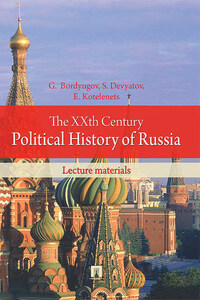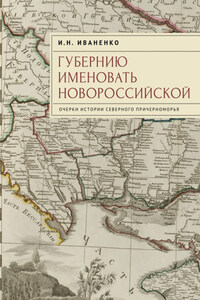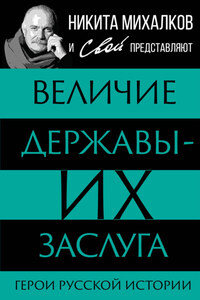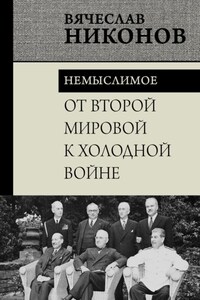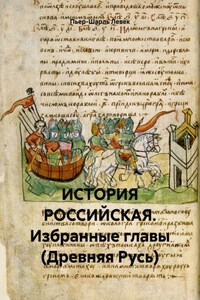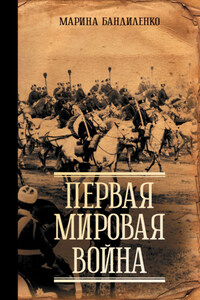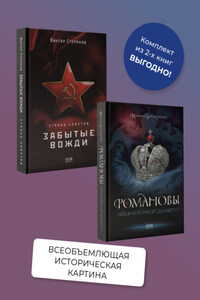УДК 94(47)
ББК 63.3(2)
В78
The authors:
Bordyugov Gennady (PhD), Head of the International Board of the Association of Researchers of Russian Society (AIRO – XXI). Since 1988, he has been teaching courses of History at Lomonosov Moscow State University. Since 1992 – invited professor at several foreign universities.
Devyatov Sergey (PhD), Head of the Department of Russian History of the ХХ – ХХl centuries at Lomonosov Moscow State University Historical Faculty, professor at Russian University for the Humanities and the Moscow Pedagogical State University. Invited professor at Peoples’ Friendship University of Russia, National Nuclear Research University «MEPhI». Lecturing on Russian History, Historiography and the History of the Moscow Kremlin.
Kotelenets Elena (PhD), since 1977 – professor at Peoples’ Friendship University of Russia. Lectures on Russian History, Historiography and Political Studies.
Translation editor – Кupriyanova Мilana.
The XXth Century Political History of Russia presents lecture materials for academics working with undergraduate, graduate and postgraduate students as well as researchers of Russian history.
The chapters are an unusual insight into the Russian past, which makes the readers think, analyze and also reconsider some events of the Russian history. It is an exciting blend of stories of the past and future trends, allowing to make forecasts and predictions.
УДК 94(47)
ББК 63.3(2)
© Бордюгов Г., Девятов С., Котеленец Е., 2015
ООО "Проспект", 2015
In the middle of last century, many held that the 20th century marked the beginning of a Russian era. Others discussed a «Russian miracle», referring to the rise of the Soviet Union thanks to the communist idea. During the 20th century, Russia found an alternative to capitalism as a result of the Great October Socialist Revolution of 1917. Industrial modernization and fantastic social mobility not only dramatically changed the image of the country, but also helped to win the mortal battle against Nazi Germany. After World War II, interest in the Soviet Union rose significantly all around the world. The communist idea was changing from a utopian idea into a palpable reality. Both common people and intellectual elites were awaiting the outcome of the «cold war» between the two systems of world order: the USSR and the USA.
«Free market capitalism» was drawing lessons from the world wars, crises, the Great Depression of the late 1920s and early 1930s, and protests by left-minded youth in the 1960s. Meanwhile, «elements of socialism» could clearly be seen in the new course of Franklin Roosevelt and Ludwig Erhard, based on expanding state control over the economy and extensive social programs. However, new challenges, primarily caused by a scientific-technical revolution, did not prevent the West from turning to Reaganomics and Thatcherism – that is, to neo-liberalism – starting in the 1980s.
In Russia, the Bolsheviks resorted to violence as a tool of building a new regime and changing society and individuals. As a result, the country received a state-controlled economy based on the administrative mobilization of people and resources, the GULAG (labor camps), the Great Terror and intellectual isolation. Khrushchev’s «thaw» and Gorbachev’s «perestroika» were attempts to get out of the historical traps the country had fallen into as a result of lingering adherence to Stalin’s and Brezhnev’s views of socialism. In 1991, the country abruptly changed course, towards the restoration of a neo-liberal form of capitalism.
These lectures provide a new understanding and new vision of the dynamics of the historical process in 20th century Russia in all its complexity. They also explain why Russia, in spite of having enormous human potential and natural resources, faced such difficulties in development. Russia is portrayed as an integral part of world history, while at the same time its historical peculiarities as compared to both the East and West.
The articles and reference materials are addressed to our colleagues: university teachers and research staff working with foreign undergraduate, graduate and postgraduate students. They will also be of interest to people studying Russian history and to visitors and others who want to get a deeper insight into the Russia’s past while also learning about trends in the development and the chosen paths of Russia in the 20th century.
We are offering our interpretation of a people’s way of life and mentality, of a country’s power structures and regimes, economic policy models, and vision of the future as well as our view of key events of the last century. The book is based on lectures and reports delivered by the authors in universities and research centers in Great Britain, Germany, Denmark, the USA, France, South Korea and Japan.
INTRODUCTION
Theme 1
THE STUDY OF MODERN RUSSIAN HISTORY: MAIN CHARACTERISTICS AND TRENDS
The academic study of history has been significantly reconsidered and retooled during the last two decades. Scholars had to solve a whole number of questions. This process was accompanied by «the struggle for the past» and the filling in of so-called «blank spots», as well as by changes in the subject matter and value orientations of Russian scholars, the destruction of previously existing historical hierarchies, the beginning of coexistence between history and the Internet, market penetration in science and rivalry for the best «packaging» of historical knowledge.
